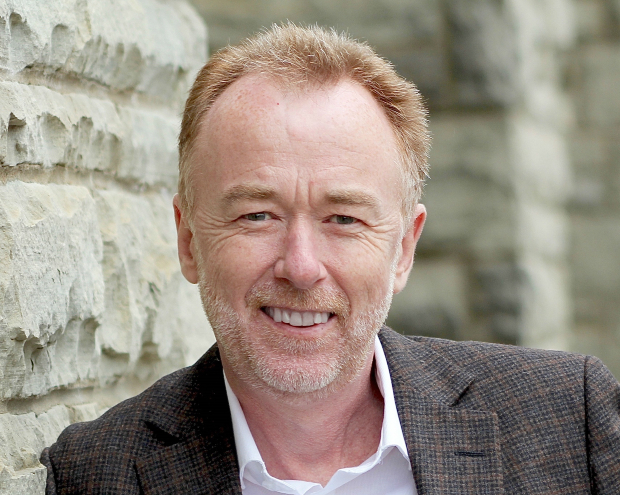
Adrian Owen made headlines worldwide almost two decades ago when he announced he had found a way to communicate with the tens of thousands of unresponsive patients who had been cruelly written off as being beyond all help.
Many of these patients who are in a so called ‘vegetative state’ are young, having suffered traumatic brain injuries in road traffic accidents, where their predicament has left their friends and families in anguish.
His paper, published in the prestigious journal Science, has sent out shockwaves ever since. We now know that many of these vegetative patients, who seem to lack all awareness, are in fact able to ‘respond’ to questions in a MRI (magnetic resonance imaging) scanner.
As part of one of Adrian’s studies, these patients were asked to imagine playing tennis if they wanted to say ‘yes’ or walking around at home if they wanted to say ’no’ in response to specific questions. Shockingly, between 20 and 25 per cent of these so-called vegetative patients could reliably answer questions.
A few years later, when Adrian moved from his Cambridge laboratory to run a major neuroscience effort in Western University, Canada, I worked with him on the world’s biggest online cognitive test, which led to a paper in the journal Neuron that challenged the idea that intelligence can be conveniently boiled down to one number, IQ.
In a later study, Adrian and his colleague Dr Conor Wild (who also put together our new brain-body online study), looked at the relationship between sleeping habits and cognitive performance, showing that too little (or too much) sleep can seriously affect your decision-making, problem solving and verbal abilities.
His research has continued to advance neuroscience. Last autumn, for example, his team showed how to use AI and brain scans to predict the recovery of a patient after serious brain injury, helping to support families families as they make sense of their loved one’s prognosis.
Now, for this October’s Manchester Science Festival, Adrian has devised a mass online test that builds on his earlier research on what he calls ‘dancing minds in immobile bodies’. It aims to lay bare more details of the relationship between body and brain, which will feature in his next book, Thinking on your Feet (his last, Into the Gray Zone, was a bestseller).
‘We are strongly encouraging participants of all ages and abilities to be a part of history and take part in the study, which involves an set of pioneering brain games that are fun to do,’ said Adrian.
‘What we hope to do is establish definitively whether things like exercise or video games are beneficial for cognition function, and if so, which aspects of the way we think benefit most,’ he added.
Everyday life abounds with examples of how the brain and body affect each other. Whether it’s the feeling of being ‘hangry’ when we don’t eat for a while, or using breathing exercises to calm the mind, or the way that kids pace around as they try to memorise something.
Exercise is also thought to reduce the risk of dementia by more than a quarter too, as we enter an exciting time when a new blood test to flag up risk of a common cause of dementia, Alzheimer’s, has been developed, perhaps providing warning up to 15 years in advance of the development of this disease that robs sufferers of their memory and personality.
Although we have recently seen the first crop of drugs that can slow the development of Alzheimer’s—donanemab, aducanumab and lecanemab—the effects are modest, they are costly and there are side effects too, such as brain swelling and bleeding, so the search will also be on to weigh up the relative effects of alternatives, such as exercise.
‘That is another reason to help us discover more about the links between brain and body,’ said Adrian. ‘These tests are thorough and take around an hour but please do take part—you can help neuroscience and get a report on how well you do.’
Adrian resorts to more than publications and online surveys to reach wider audiences. For the past two decades, Adrian has played guitar and sung in bands made up of fellow musicians and scientists at concerts in Britain and Canada, not least to encourage people to get their COVID-19 vaccination.
